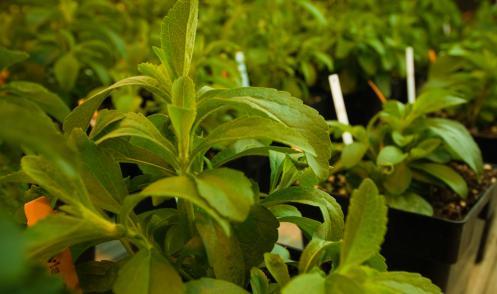Lignin can make building materials less toxic



Michigan State University
August 4, 2017
BY Michigan State University
A collaborative study by Mojgan Nejad, MSU forestry, proves that lignin, a byproduct of paper and bioethanol production, can completely replace phenol in phenolic adhesive formulation. This research directly impacts housing manufacturing by introducing biobased adhesives made of lignin, a renewable resource, instead of petroleum-based phenol.
Nejad’s research is the first instance showing the 100 percent successful substitution of phenol with lignin. For the last 30 years, researchers have been attempting to fully replace phenol in phenol-based glues. However, only partial replacement, up to 50 percent, was possible. The research team was successful in testing plywood samples made of developed resin. When compared to commercial petroleum-based adhesives, the plywood made of lignin-based adhesives exhibited similar shear strength under both wet and dry conditions.
“Our work has opened up an opportunity for the waste generated through bioethanol processes to create adhesives for engineered wood products,” Nejad said. “This will help the housing market to be less dependent on petroleum-based raw materials.”
Advertisement
Advertisement
Phenol-formaldehyde resins are commonly used to manufacture construction materials such as: plywood, oriented strand board, or OSB, and laminated veneered lumber. These items make up components of roofs, kitchen cabinets, furniture, wood floors and more. Downsides of phenol-based adhesives include that they are petroleum-based. This means that production costs can fluctuate with changes in the price of oil. Additionally, chronic exposure to phenol can have health risks for workers in manufacturing plants.
Lignin is an ideal substitute because it’s considered a waste product. Isolated lignin is mostly discarded or burned to generate fuel for manufacturing. Lignin is the most abundant aromatic polymer, which makes up about 30 percent of the dry mass of plants. Nejad and collaborators have proved that it can be repurposed into green building products to replace phenol in commonly used glues.
Replacing 100 percent of phenol with lignin significantly improves the percentage of renewable raw materials. It creates a new generation of bio-based adhesives, improves working conditions for manufacturers and provides employment opportunities for biorefineries.
“Many major pulp and paper and bioethanol producers are keen to find applications for their lignin,” Nejad said. “We are moving to a paperless society. We can keep the jobs within the pulp and paper industry if we can introduce new products for biomass. This is one of the ways to keep the industry in business and maintain jobs in these plants.”
Advertisement
Advertisement
Read the full article in the Journal of Applied Polymer Science.
Researchers from Mississippi State University and University of Toronto also contributed to this study. The project was funded by Poet LLC.
Related Stories
Ethanol Producer Magazine has announced the keynote speakers for the 2025 International Fuel Ethanol Workshop & Expo (FEW) being held June 9-11, 2025, at the CHI Health Center in Omaha, Nebraska. The general session will take place June 10.
Argent Energy, a leading European biofuels manufacturer, has officially launched Europe’s largest facility dedicated to producing biobased, technical-grade glycerin at its Port of Amsterdam site in the Netherlands.
Preliminary agenda released for 40th annual International Fuel Ethanol Workshop & Expo
Ethanol Producer Magazine announced this week the preliminary agenda for the 2024 International Fuel Ethanol Workshop & Expo (FEW) taking place June 10-12, 2024 at the Minneapolis Convention Center in Minneapolis, Minnesota.
A University of Alberta researcher has developed better ways to convert carbon dioxide, a harmful greenhouse gas, and glycerol, a leftover of biodiesel production, into value-added materials with wide-ranging uses including liquid hydrogen storage.
A group of some of the largest shrimp producers in Ecuador recently attended the Distillers Grains Technology Council's Distillers Symposium in Iowa with the USGC. The event provided an overview of the U.S. distillers’ industry.
Upcoming Events










